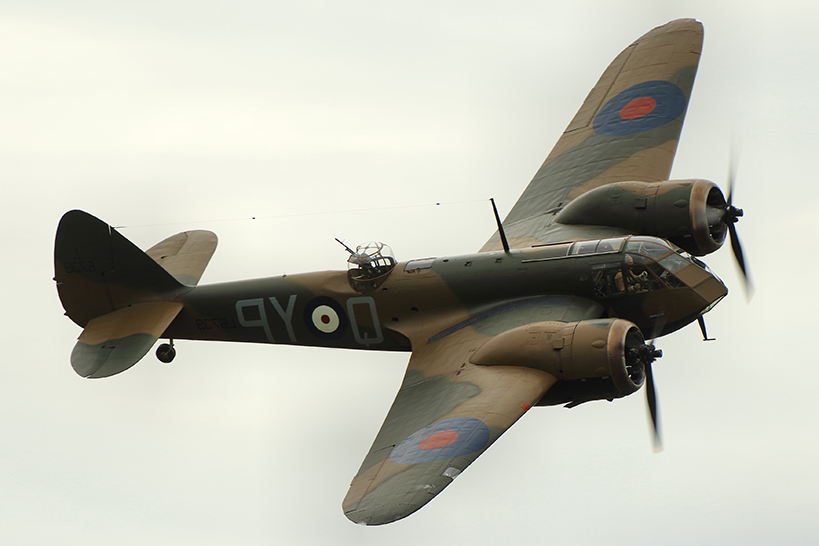Booth, John Stanley
- Date of birth:
- December 9th, 1919 (Totties/Yorkshire, Great Britain)
- Date of death:
- June 5th, 1958
- Nationality:
- British
Biography
Service number 41658.
John Booth entered the RAF on a short service commission in December 1938 and was sent to France in 1939 as a reconnaissance pilot with No. 59 Squadron which was equipped with the Bristol Blenheim. He was wounded in May 1940 and was hospitalized in England until August 1940. Discharged from the hospital, he served as a flying instructor until December 1940. In January 1941 he was sent to Canada to instruct over there. He served in Canada until March 1943.
In April 1943 he started on a second tour of operations with 51 OTU and 125, 151 and 239 Night Fighter Squadrons after which he after served with Bomber Command on night intruder operations, until October 1944.
He was subsequently restationed at Boscombe Down as a test pilot. He went to to test several aircraft until after the war. On June 5th 1958 he crashed whilst taking off in XD151, a Saunders-Roe SR.53, and was killed.
Promotions:
October 2nd, 1939: Acting Pilot Officer
December 28th, 1939: Pilot Officer
October 2nd, 1940: Flying Officer
October 2nd, 1941: Flight Lieutenant (war sub)
Do you have more information about this person? Inform us!
- Period:
- Second World War (1939-1945)
- Rank:
- Pilot Officer
- Awarded on:
- August 6th, 1940
- Period:
- Second World War (1939-1945)
- Rank:
- Acting Squadron Leader
- Unit:
- No. 239 Squadron, Royal Air Force
- Awarded on:
- January 16th, 1945
"This officer has been employed as a flight commander in his squadron for a considerable time He has taken part in many operational missions, during which he has destroyed two enemy aircraft and damaged two trains. On several occasions he has acted as deputy in the absence of the squadron commander, and has discharged these duties in a capable and efficient manner. In September, 1944, he gave a fine demonstration of his skill, when, while on an operational sortie to the Rostock area, one engine of his aircraft, failed and he was forced to fly to base, a distance of 600 miles, with only the port engine functioning. His leadership and resourcefulness have set a fine example."
Second DFC awarded as a bar for on the ribbon of the first DFC.
Sources
- - SHORES, CH., Those Other Eagles, Grub Street, London, 2004.
- The London Gazette Issue 34915 published on the 6 August 1940
- Third Supplement to The London Gazette Issue 36894 published on the 12 January 1945




